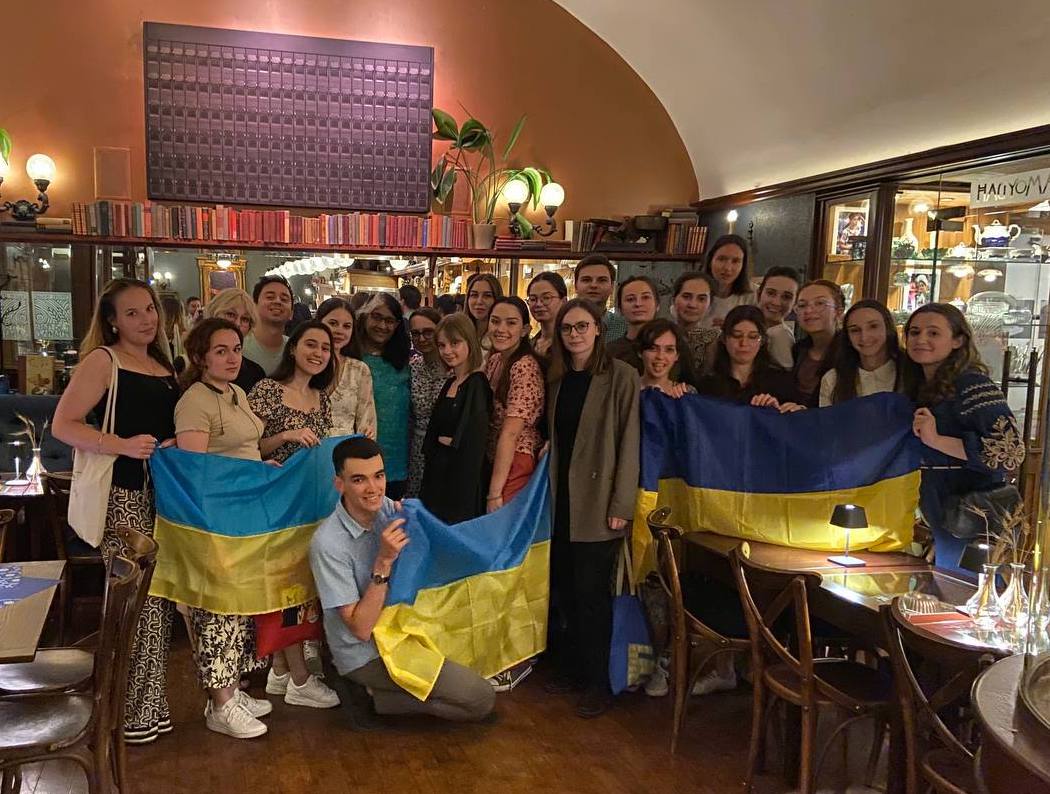Before the beginning of the new fall semester of the Invisible University for Ukraine, editors of Visible Ukraine share their memories and experiences from the previous semesters.
Fall is coming, and for the coordinators of the Invisible University of Ukraine (IUfU) it’s time to prepare to meet the new cohort of students who are applying for the new semester. The coordinators will read dozens of fascinating life stories and personal motivation letters from those who desire further education and want to reach higher and be more persuasive. Of course, our coordinators will sacrifice their sleep and occasionally compensate for it with a huge amount of coffee from time to time,(one of the main student coordinators, Yevhen, remains extremely strong and mystically survives even without coffee; probably, the love for the project is the thing that keeps him awake).
Throughout its three semesters, the Invisible University for Ukraine, a transnational solidarity program established by Central European University, does its best to help Ukrainian students whose studies were affected by Russo-Ukrainian war after 24th February 2022. Since then, around 400 students became a part of what started as an intensive learning experience on the role of Ukraine in changing European and global contexts, but has since transformed into something much bigger. It has also become something much more personal. Meetings in Zoom turned into warm hugs during our meetings in real life, our lectures were patiently recorded and kept in notebooks, student papers turned into publications, and formal connections became strong friendships.
IUfU exists because there are students who cannot receive their primary education safely at their universities in Ukraine that are under the danger of the rocket attacks. As a result of that, IUfU is a project of crisis-management. All of us deeply wish that there would be no need for the creation and continuation of such an initiative, but in the context of the full-scale war, we aim to devise something that might help those who want to continue their education, even in the most difficult times. Most of IUFU’s students remain in Ukraine, and are joining the courses despite the electricity cut-offs, despite the constant danger, and despite the permanent stress of war. These people, who despite everything, want to receive their education and to contribute to the way that Ukraine is and will be perceived in the global context that IUFU exists.
IUFU has experienced a lot: hundreds of students, more than 200 invited lecturers, and 19 courses offered; so it seems like there is not a lot with which to impress new students. During the past three semesters, we discussed the most difficult topics for each of us in a common effort to find solutions. We debated, changed each other’s minds and were constantly learning from each other. We would like to share with you some memories of those who spent their last semesters joining IUfU’s courses and created the material for the “Visible Ukraine” web-journal. Today, we will bring you the memories of the editorial board about their experience at Invisible University for Ukraine. We share our memories from the past semesters and hope that very soon we will create new ones, with new participants.
Kateryna Lysenko
Bachelor student in Philosophy at University of Leipzig.
Participated in the courses:

- Picturing the War: Visual Media and their Publics, course directors Dr. Oksana Sarkisova and Dr. Taras Fedirko (Spring 2023)
- Ideologies on the Move (Fall 2022)
- Symbolic Geography, Contested Identities and Mass Violence: Ukrainian History in European Contexts (History Track), course director Dr. Vladimir Petrović (Spring 2022)
With the unfolding war, learning seemed to be a completely dishonest thing to me. In my case, I think it was the physical experience that could not find an appropriate articulation in the familiar verbal form of articulation that I have been dealing with for at least 3 years in philology.
I couldn’t physically deal with these “horrifying circumstances”-and-“we stand with you” talks, but during my time at IUfU I started seeing a bit further than my own nose and realized that it is important that people say it and it may be important for someone to listen to it, as you never know who is near you that needs your ear. I also realized that the form of articulation that I was so concerned with is not as relevant in war as the intention that people meditate with it.
What I found really funny was the reaction of different lecturers, mentors, organizers, etc. who have somehow been surprised by how resistant and thoughtful the students are. I think one should not need to be too smart to see and (not any less important) to say certain things in war time, as it is another existential space in which we all operate that makes certain things visible, and in this visibility, it is not something special; it is self-evident to act and react in a certain way.
We were all aware that everyone involved in this project is living through something, and every experience is incomparable with another. For me, it was a transition away from thinking how-stupid (or to be honest) what I or other people say, and I started thinking about why we say it, why I find it stupid and more importantly, what I do with it, how we interact in this case and so on. So the part I value most about IUFU is learning not in terms of acquiring information but learning with/from/through people, and seeing how we change and find ways together to articulate what we live in.
Marta Haiduchok
Master student in Comparative History at Central European University.
Participated in the courses:
- Ukraine: Imperial, Soviet, Independent, European core course of the program), course directors Dr. Vladimir Petrović and Dr. Nazarii Statsyk (Fall 2022)
- Public History (History Track), course director Dr. Viktoria Sereda and Dr. Bohdan Shumylovych (Spring 2023)
- (Post)conflict Transformations in the Western Balkans: Drawing Insights for Ukraine? (History Track), course director Dr. Vladimir Petrović (Spring 2023)
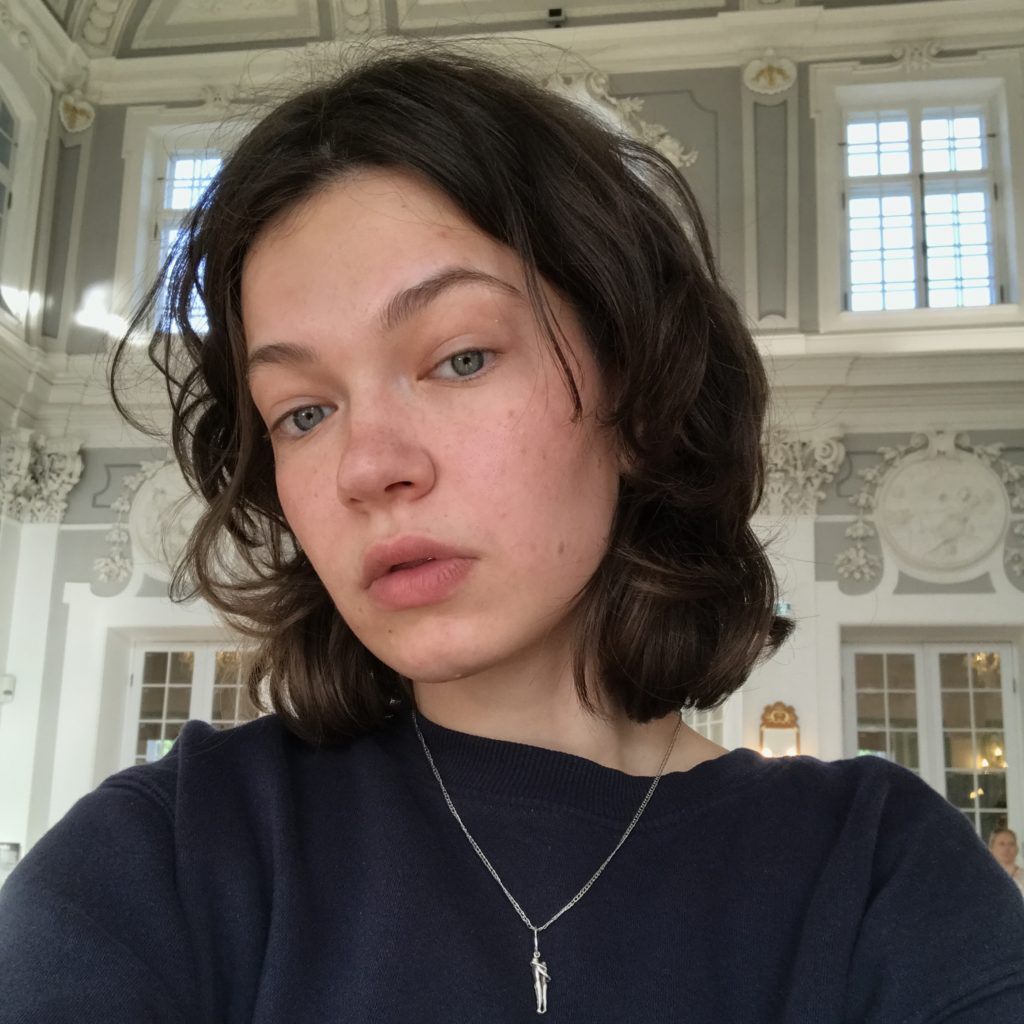
At the end of the day, everything for me is a story about the relations of power. Boring and nerdy answer, I know. But it was IUfU where I firstly understood how much I can do, and that I have a voice. The voice that doesn’t necessarily need to go with the suggested paradigm, the voice that can raise questions, is sometimes obnoxious, sometimes provocative and deeply problematic. And while doing this, while raising your hand in Zoom, while preparing the suitable words to ask the most ridiculous thing that actually was worrying me for a while, I feel that I’m in charge of something. That I can be more, reach higher, become more visible in all the possible senses of that word.
I remember the first lecture of the first semester at IUfU. It was a lecture by Larry Wollf, a famous historian, whose books I learned by heart at that point. And I was so scared… Because at that point I already had some questions and comments, and to be honest, I already had slightly different views on the mental geography than he had. I was just one of the students, finishing my Bachelor’s degree, and I thought, “Who am I to even bring this up? What do I have to say to someone who has worked in this field since before I was even born?” and then, of course, I asked the question. Because “When else would I even have a chance to do this?”. Apparently, he smiled and said that my question was actually a good one. (I don’t even remember what I asked at this point). But I was happy, enlightened, and extremely excited. And this is how all of those three past semesters at IUfU were for me. It was always not about the lectures, not about the topics (believe me, those were also deeply interesting), but it was all about gaining the inner power to raise my voice. Three semesters later, there is nothing that I would be scared to say – even if that would make other people uncomfortable, even if that would question the existence order of things. I am a student, but I am also the voice of my generation. And so are all of you. Embrace this, come with your voice, and make sure that you will be ready to learn more about yourself than you thought you would.
Eduard Lopushniak
PhD-student in Sociology at the Taras Shevchenko National University of Kyiv.
Participated in the courses:
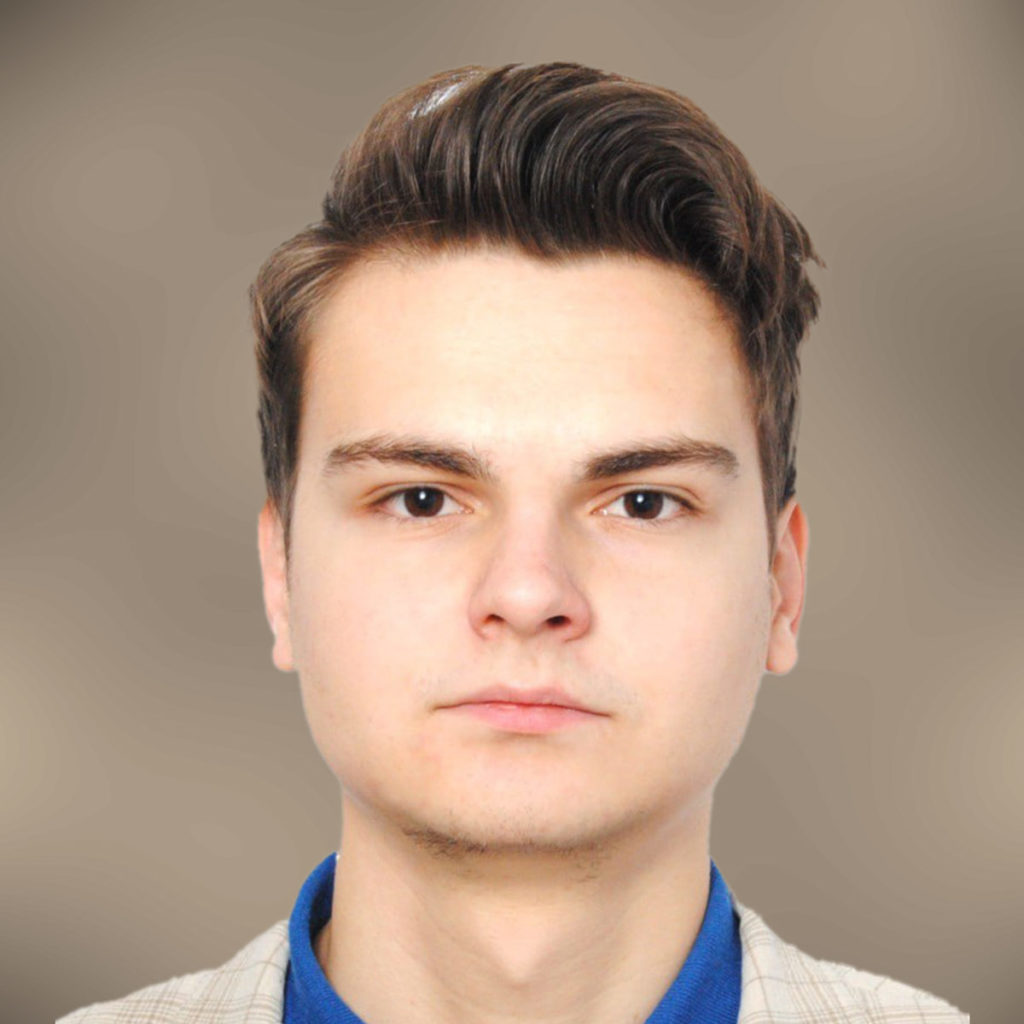
- (Post)conflict Transformations in the Western Balkans: Drawing Insights for Ukraine? (History Track), course director Dr. Vladimir Petrović (Spring 2023)
- Politics and Law, course director Dr. Nazarii Statsyk (Spring 2022)
- Rule of Law and Human Rights: Old Challenges and New Opportunities in Times of War and Uncertainty, course director Dr. Nazarii Statsyk (Spring 2023)
When I remember my first weeks in the IUfU project, the first thing I remember is that I was happy as a clam from studying.
I clearly remember that I received the recruitment announcement on April 10, 2022, and the deadline was April 14. I couldn’t believe my eyes when I opened the document. Before that, I already had basic knowledge of what CEU is, its place in the world scientific community, and its mission. And here I have the opportunity to study at a university that occupies top places in the field of social sciences. I genuinely smiled when I saw the well-known CEU emblem on top of the document; I immediately started writing a motivational letter and CV at that moment.
Then, I was pleasantly surprised that the university immediately started making me a personal e-mail and an account in Moodle. It seems like a small thing, but I was really pleased that CEU gave us the same opportunities as its other students. The library, which I had previously read about only on Wikipedia, became open to me one day. By the way, I don’t have a student mail at my Ukrainian university, even though I’ve been studying there for 8 years 🙂
I am researching democratization, so I have been reading books and articles by Mitchell Orenstein from the University of Pennsylvania. I was very surprised when, in the second week of studying, he was a lecturer. If someone had told me in a month or two that this would happen, I would not believe it. It is incredibly cool that Ukrainian students were given the opportunity to integrate into the world academy.
IUfU has become a powerful platform for the exchange of ideas between Ukrainian and international students and teachers. The main achievement of this project will be the fact that Ukrainian students will use their acquired experience to change Ukrainian university education in the future.
Kateryna Osypchuk
Master student in Public History at Central European University.
Participated in the courses:
- Cultural and Heritage Studies (Spring 2022), course directors Dóra Mérai, Volodymyr Kulikov.
- Memory and the City. Shaping Collective Remembrance and Re-Articulation of Past in Ukraine in European Contexts (Fall 2022), course director Tetiana Vodotyka
- Public History (Spring 2023), course directors Dr. Viktoria Sereda and Dr. Bohdan Shumylovych.
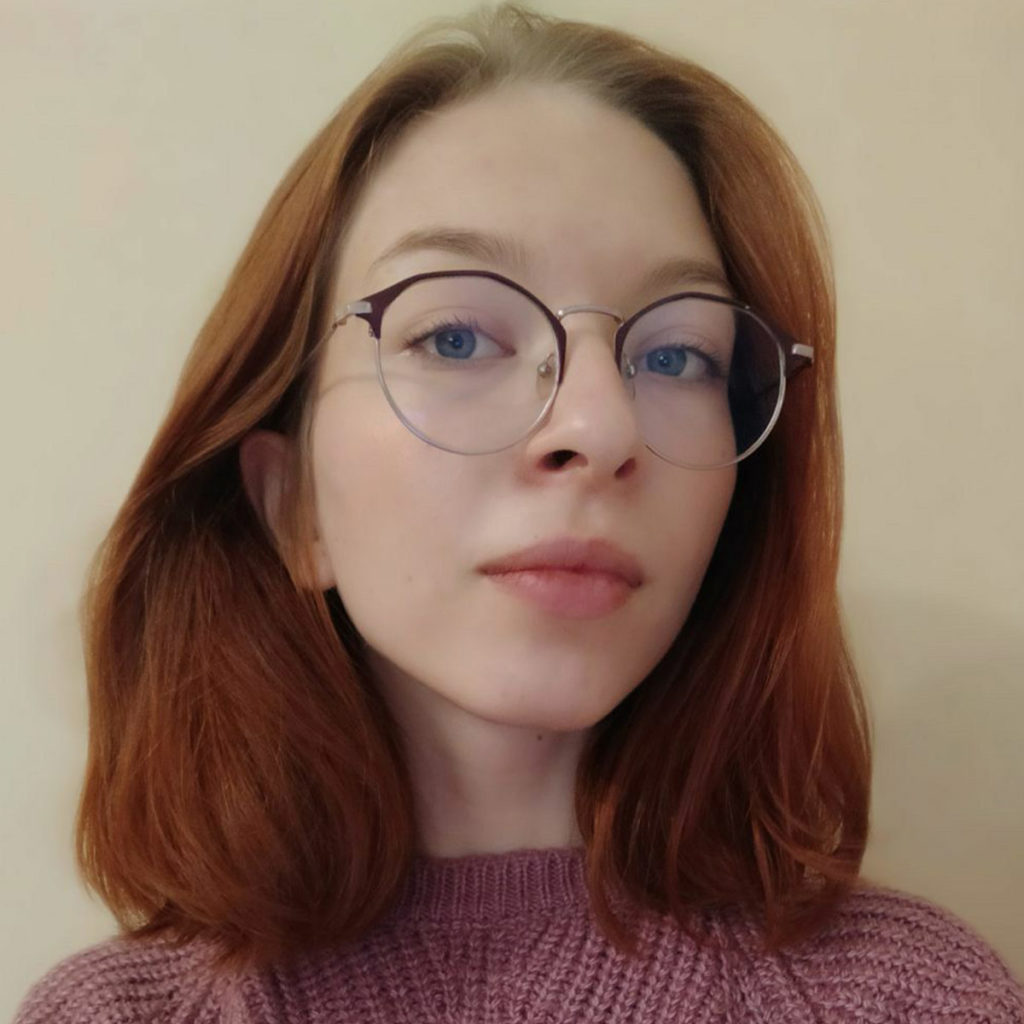
For me, Invisible University for Ukraine became a much-needed space for collective knowledge production in a time of a drastic change in meaning-making and knowledge organization caused by the Russian invasion of Ukraine. The physical distancing among the students and researchers that continued the pandemic’s isolation and the changes in the concepts and meanings we were familiar with reinforced the need for new ways to connect and create knowledge collectively. Thus, the program that brought together Ukrainian students with diverse research backgrounds but common academic interests became such a valuable one. The chance to broaden the horizons beyond one’s educational institution, to expand the comfortable and predictable academic bubble of the alma mater aided us in seeing sharper, developing a better perspective, and continuing our research.
Throughout three semesters, we discussed the issues of protecting democracy during and after the war, war evidence and documentation, preservation and (re)articulation of historical and cultural heritage in urban spaces, the creation and transformation of different canons, and decolonization. The discussions were especially thought-provoking due to the variety of perspectives involved. It was particularly noticeable during summer and winter schools, where discussions continued during coffee breaks, lunches, nights, and countless bookshop visits. It also felt very supportive last winter, in a time of electricity shortages and blackouts — each week, I knew that I had a lecture, a mentoring session, and insightful readings awaiting me. The project has also provided a valuable opportunity to preserve and redefine my research identity and research interests in times of their shifts and changes.
Nadiia Chervinska
Master student in Comparative History at Central European University.
Participated in the courses:
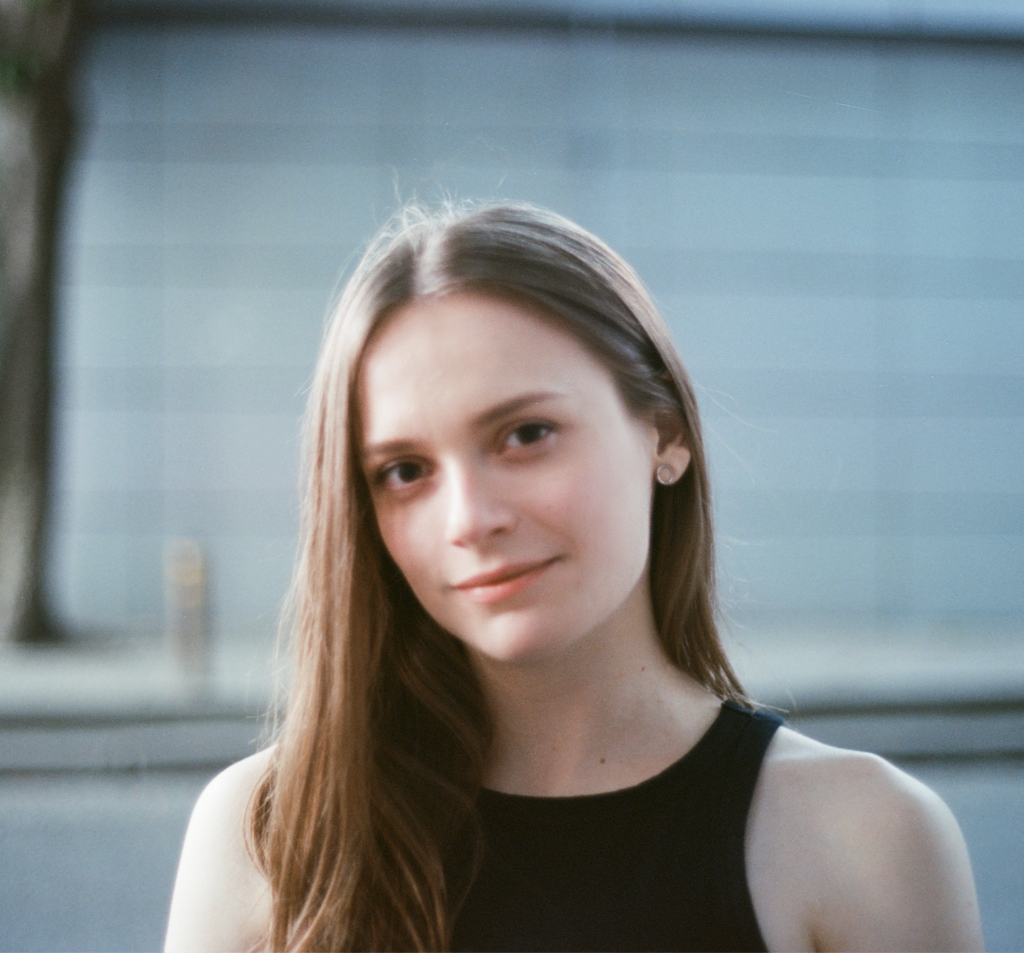
- Rethinking Ukrainian Studies in a Global Context (core course), course director Dr. Ostap Sereda (Spring 2023)
- History of Public Sphere in Ukraine and East Central Europe (History track), course director Dr. Ostap Sereda (Fall 2022)
- Symbolic Geography, Contested Identities and Mass Violence: Ukrainian History in European Contexts (History Track), course director Dr. Vladimir Petrović (Spring 2022)
As someone who found academic refuge in the Invisible University for Ukraine, I have to say the experience has been akin to finding a quiet place in a situation of complete turmoil. During the initial months of the full-scale invasion, stress was a constant companion. I remember when the Kyiv region had just been de-occupied, the air was filled with shock and horror as the world learned about the atrocities committed by Russian soldiers. I was feeling so disoriented that reading even a couple of pages of a book seemed like an impossible task.
At that time, the courses at IUFU had just started, and apart from intellectual inspiration, they had a deeper, almost therapeutic influence on me and, I believe, on many other Ukrainian students. The atmosphere was charged with collective resilience. Each lecture felt like an act of reclaiming my intellectual space from the harsh reality brought on us by the unjustified Russian invasion. During IUFU classes, I truly felt the support and compassion from the academic community—professors, mentors, and students. There was an unspoken understanding among all of us that we were united, not just by our academic interests, but also by the collective traumas and hopes. That’s why I believe that IUfU isn’t just an educational experience. The courses are designed to give us the courage to ask tough questions, explore controversial ideas, and believe, against all odds, in the power of knowledge. And for that, I will always be grateful.
Nataliia Shuliakova
Bachelor student in History at Yale University.
Participated in the courses:
- History of Public Sphere in Ukraine and East Central Europe (History track), course director Dr. Ostap Sereda (Fall 2022)
- Memory and the City. Shaping Collective Remembrance and Re-Articulation of Past in Ukraine in European Contexts (Fall 2022), course director Tetiana Vodotyka (Fall 2022)
- (Post)conflict Transformations in the Western Balkans: Drawing Insights for Ukraine? (History Track), course director Dr. Vladimir Petrović (Spring 2023)
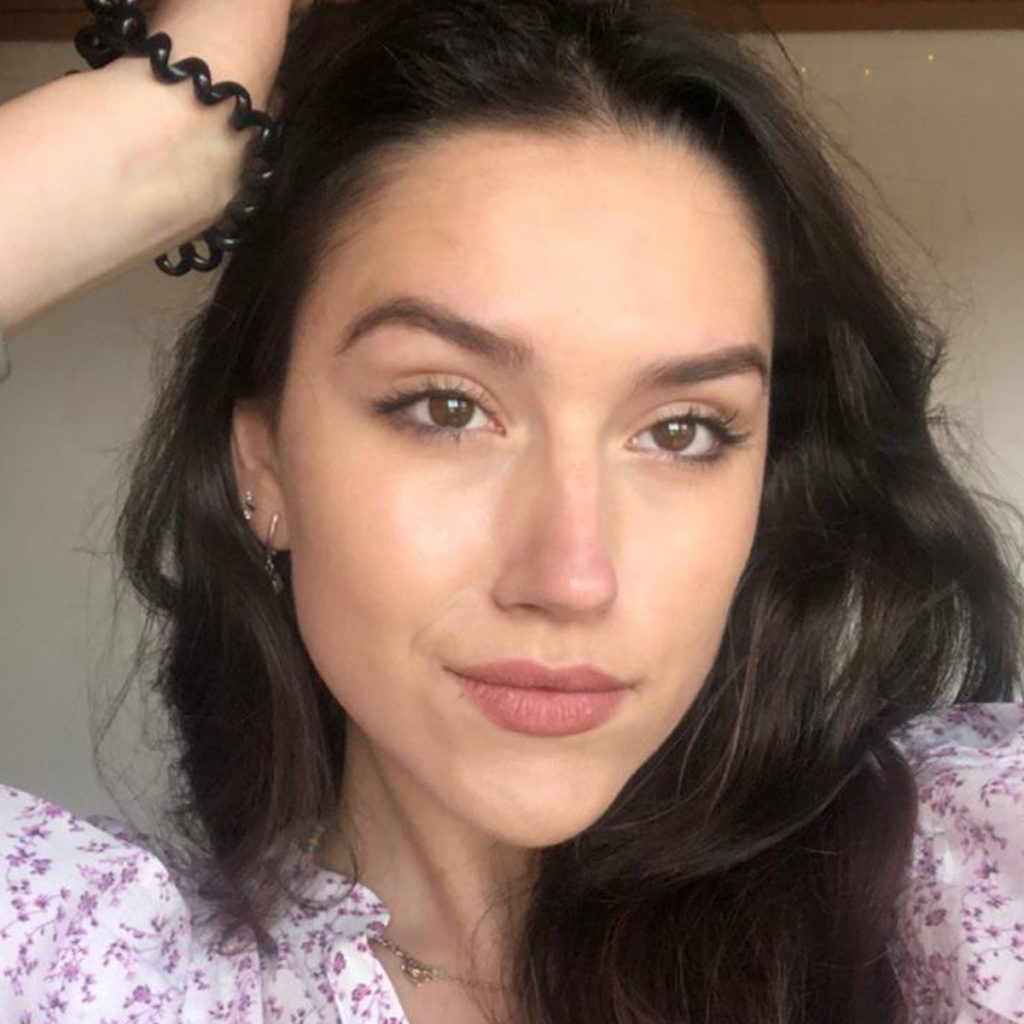
Over more than a year that I have found the IUFU community, its meaning has changed for me several times. When the program started, I was already forcibly in exile and felt lost in a new context, and afraid of losing connection to my own as well. Apart from academic stimulation, which was much needed, the lectures brought warmth and a feeling of togetherness in concerns, interest, questions to be asked, and topics to reflect together upon. IUFU became a platform that transcended geographical and academic boundaries. It became a space for Ukrainian and international scholars to come together and collectively assess what was happening to us today and where we can take it from here, rather than being mere spectators. Unity and mutual understanding, readiness of everyone to act in spite of circumstances — IUFU gathered people who inspired this.
Later, IUFU became an extended family I never hoped to find. Some students stayed in the program since the beginning, and every new semester amazing people were joining and bringing their expertise in the field, perspectives for the questions we raised (about reintegration, changing the Rule of Law, protecting democracy in the state of war, rebuilding and preserving heritage, etc.), and ideas for improving IUFU’s space. As for a person in the beginning of their academic career, the non-hierarchical structure of the program was important to feel. During the lectures, mentoring meetings, countless over-the-time discussions that during the summer and winter schools grew into sleep-deprived but inspired nights, it was obvious the important factor was not the years one spent in academia, but the ideas one had to share. Today, I am working alongside people who once were my mentors or professors, and whom I (still) looked up to; we are fundraising money and go to conferences together. The promotion of a non-hierarchical approach also changed my perspective on academic relations — now, I would feel equally confident engaging in academic discussions with my peers or Ivy-league professors. Learning the skill of disagreeing with something in argumentative-based academic manner, and still having a stimulating for both-sides dialogue, was particularly significant.
What warms my heart the most is the certainty that the relations from IUFU will last for decades, and ideas we are discussing in the classroom will turn into real-life projects, which is already happening. When I will be looking back at this time, I will remember that I was a part of something bigger, and we were taking action.
Yevhen Yashchuk
PhD-student in History at Oxford University.
Participated in the courses:
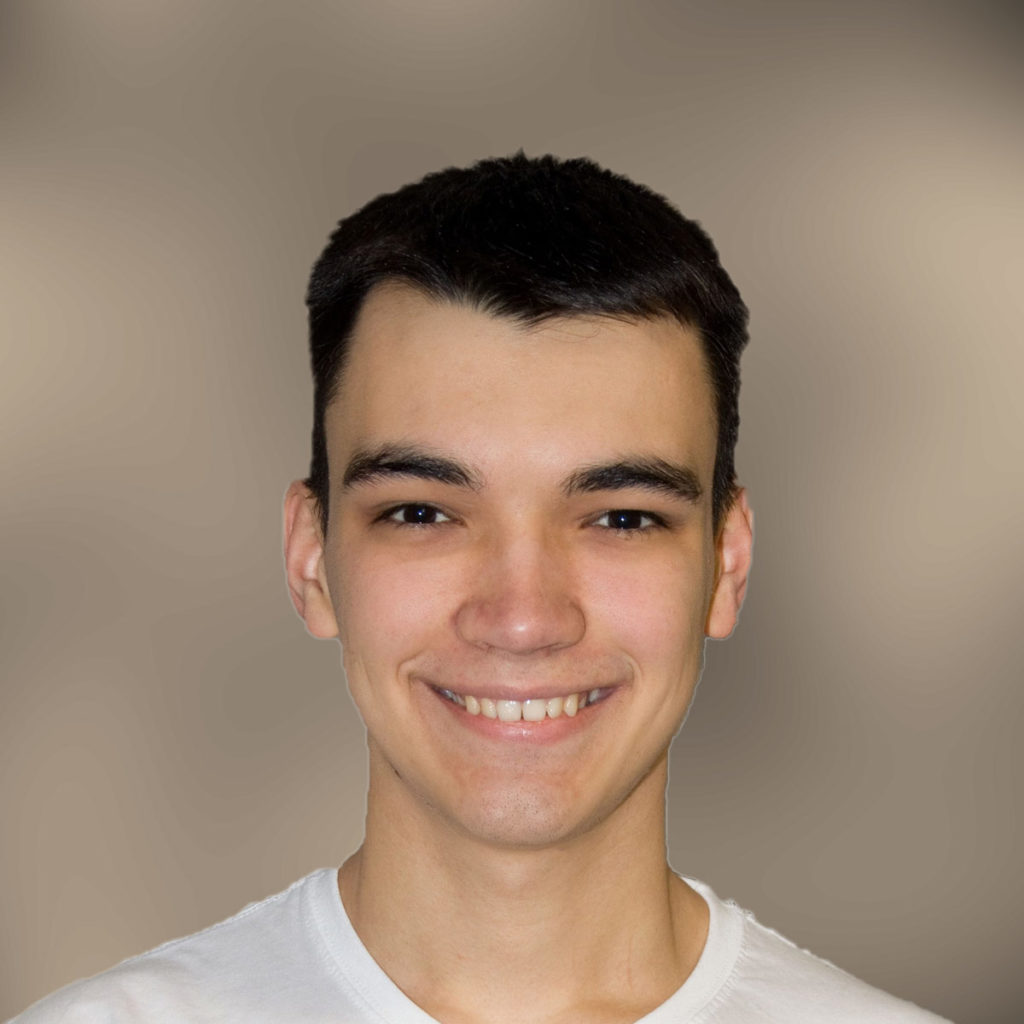
- Picturing the War: Visual Media and their Publics, course directors Dr. Oksana Sarkisova and Dr. Taras Fedirko (Spring 2023)
- History of Public Sphere in Ukraine and East Central Europe (History track), course director Dr. Ostap Sereda (Fall 2022)
- Symbolic Geography, Contested Identities and Mass Violence: Ukrainian History in European Contexts (History Track), course director Dr. Vladimir Petrović (Spring 2022)
I always wait for the first introductory meeting at IUfU when we have an opportunity to listen to a speech from our founders and look at the Zoom black squares to find familiar faces or recognize the newcomers who arrived in our virtual space to co-create invisible experiences. I never know from where our students join us or what they have lived through in the past week, but the wartime makes those simple questions almost vital because we create online education in the midst of constant offline craziness. Those students who came to us in the previous semester often demonstrated how to cope with this craziness, acknowledging its presence but not allowing it to swallow them. Their reflections and emotions drove me to continue working with dozens of Excel tables to make the experience as smooth as possible.
Responding to requests early in the morning or around midnight, I always know that if there is an opportunity to facilitate students’ education process, I would opt for that. I am also looking forward to our mentoring sessions when I can enjoy listening to the thoughts of those whom I otherwise cannot meet. IUfU presents a great space for the exchange of ideas even though those ideas may sometimes sound controversial. And it is a pleasure to see people coming back, again and again, to listen to another bunch of courses that we are offering. However, such a pleasure also entails the challenge of building a new semester to avoid being repetitive. In the next semester, we will have seven completely new courses, which nevertheless are connected to topics and contexts we discussed during the previous semesters and schools. Every course has something to tell about Ukraine and the war experiences Ukrainians are living through. Each of them, I believe, poses the urgent questions those experiences might have uncovered. And we need people to look for the answers together.
These memories stayed with us, as well as millions of fun, professional, and deeply academic inappropriate stories that we bring up during the friendly meetings. And we want to make sure that you will also become a part of those meeting, a part of the project, a part of the networks, a part of our friendship.
More information about the upcoming fall semester can be found here: 2023 Fall Semester — Invisible University for Ukraine (IUFU)
